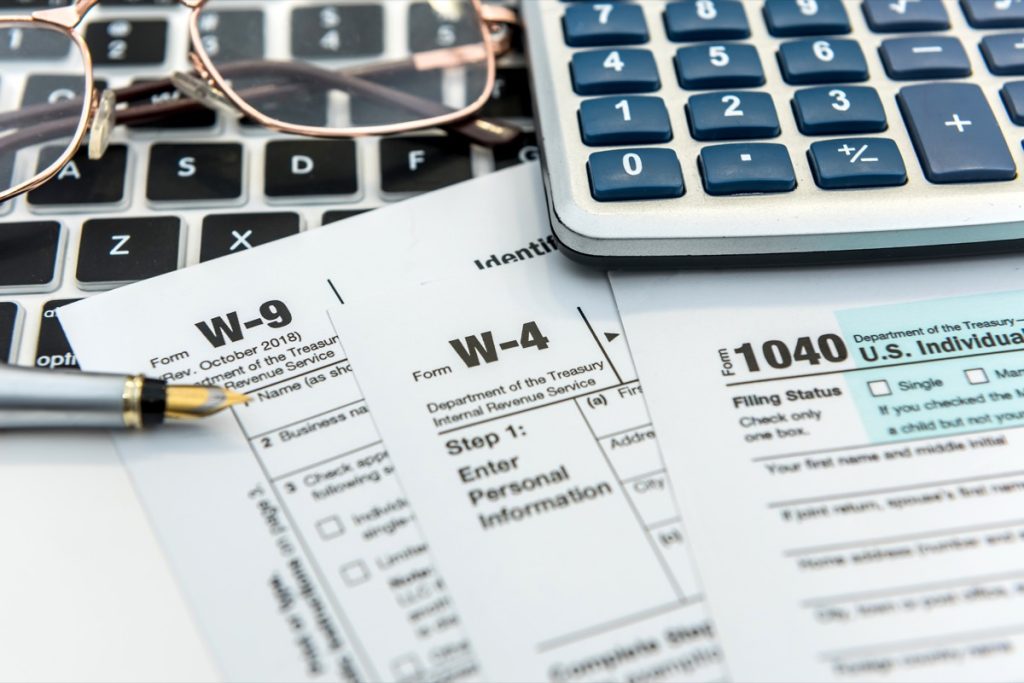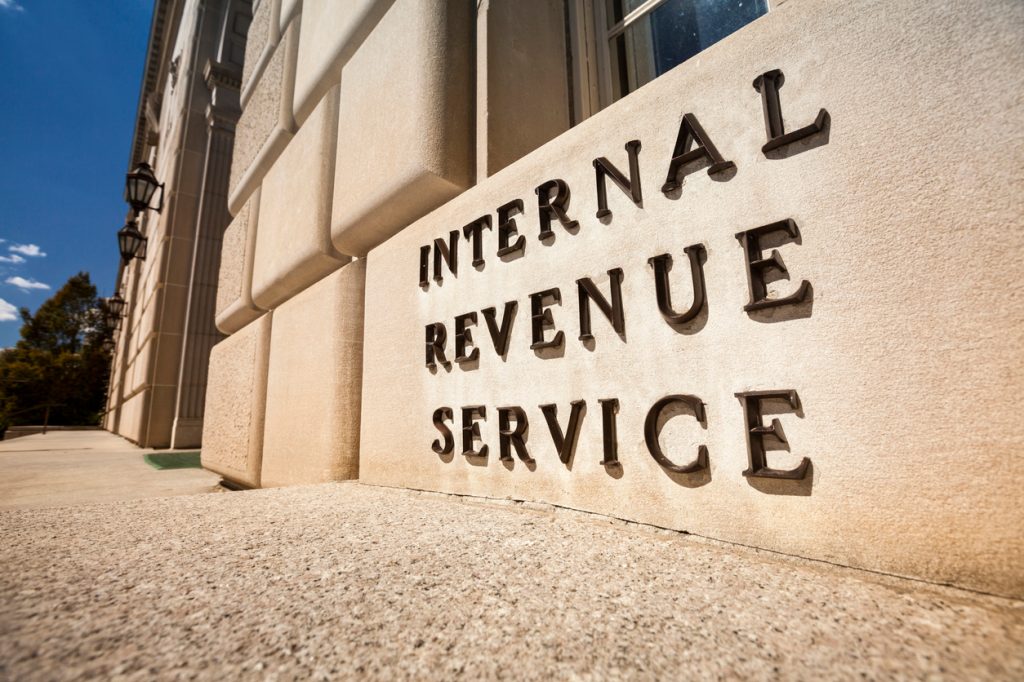IRS Raises Underpayment Penalties—How to Avoid “Giant Fees”

Even when you’re well prepared and using the right tools, things can still go wrong when it comes time to pay your yearly taxes to the IRS (Internal Revenue Service). Most people fear getting audited above all else due to an accounting error or taking the wrong type of deduction. But taxpayers should also be aware that the IRS has raised its underpayment penalties, which could result in some “giant fees” being added to your bill. Read on to see how you can avoid this costly mistake.
RELATED: IRS Announces Major Tax Filing Changes for Next Year—Are You Affected?
Paying the wrong amount on your taxes can wind up costing more in the end.

How much you owe the federal government each year can vary drastically from person to person. People who are self-employed, freelance workers, and anyone who generates income in any other way often have a particularly complicated tax filing process as they calculate precisely what amount to send the IRS—which is why many opt to pay estimated taxes quarterly throughout the year, according to personal finance website The Motley Fool.
However, taxpayers may sometimes miscalculate the amount they owe the IRS and underpay their share. In these cases, the agency will then charge the person interest on what they owe as well as additional percentage points to the taxpayer’s annual rate. Unfortunately, this can result in a hefty amount getting added on top of one’s standard tax bill.
RELATED: 4 Warnings About Using TurboTax, According to Experts.
The fees for underpaying estimated taxes have drastically increased since 2021.

Similar to income brackets, the IRS sets and posts the penalty amounts it charges for people who underpay for their quarterly taxes. But due to inflation, the agency has drastically increased the amount by charging 8 percent interest on what’s due, The Wall Street Journal reports. This is more than double the 3 percent rate charged in 2021.
The move comes as the IRS retools its policies in the face of rising interest rates. And the penalties can add up: The agency said it handled over $1.8 billion in late charges on roughly 12.2 million individual tax returns in 2022, The Journal reports.
“It’s a cautionary tale for individuals to think about as we get toward year-end,” Joseph Doerrer, a New Jersey-based certified public accountant (CPA) and certified financial planner, told The Journal. “Are you where you should be?”
RELATED: IRS Issues New Alert on What You Must Do Before the Year Is Over.
Penalties can also make it harder to pay the government what’s owed, resulting in an even higher ultimate bill.

There are still a few exceptions to who’s subject to a penalty. According to IRS policy, anyone who is found to owe a balance less than $1,000 isn’t liable. Neither is anyone who paid at least 90 percent of the taxes they owe for the year in question on time. Also, anyone who paid 100 percent of the amount they owed as estimated from the previous year on time each quarter is also off the hook.
But for some workers who don’t have a W-2 and have things like payroll and social security tax withheld from their paychecks, the final number can sometimes come as a serious shock. The unexpected amount can also result in taxpayers being unable to pay what they owe in full, which can land them in a payment plan with the agency that charges further interest and makes the bill even more expensive, The Journal reports.
The fees can come as a surprise for workers who decide to dip into freelance or side gigs. According to Sameet Durg, a marketing executive who also works as an independent consultant, the shock of owing thousands of dollars on top of what was already paid at the end of the year was a serious wakeup call.
“Now I pay attention to taxes all year around,” Drug told The Journal. “I don’t want the giant hit in April.”
RELATED: If You Already Did Your Taxes, You May Need to File an Amended Return, IRS Warns.
Staying on top of your payment schedule can be the easiest way to avoid hefty underpayment penalties.

While figuring out what you owe can feel overly complicated, there are still a few things to keep in mind if you want to avoid shelling out even more to the IRS.
Most importantly, stay on top of any extra income you generate throughout the year and make it a point to stick to the agency’s payment schedule, Doerrer tells The Journal. It also helps to keep track of how much you’re making year to year, aiming to put in up to 110 percent when your income has increased and making sure to hit 90 percent per quarter when it’s gone down.
If you’re still confused, you can use a tool the IRS offers that can help calculate what you owe in withholdings. You can find out how much you should be paying each quarter by inputting some information from recent pay stubs, investments, side jobs, and your most recent tax return.
Best Life offers the most up-to-date financial information from top experts and the latest news and research, but our content is not meant to be a substitute for professional guidance. When it comes to the money you’re spending, saving, or investing, always consult your financial advisor directly.
RELATED: For more up-to-date information, sign up for our daily newsletter.